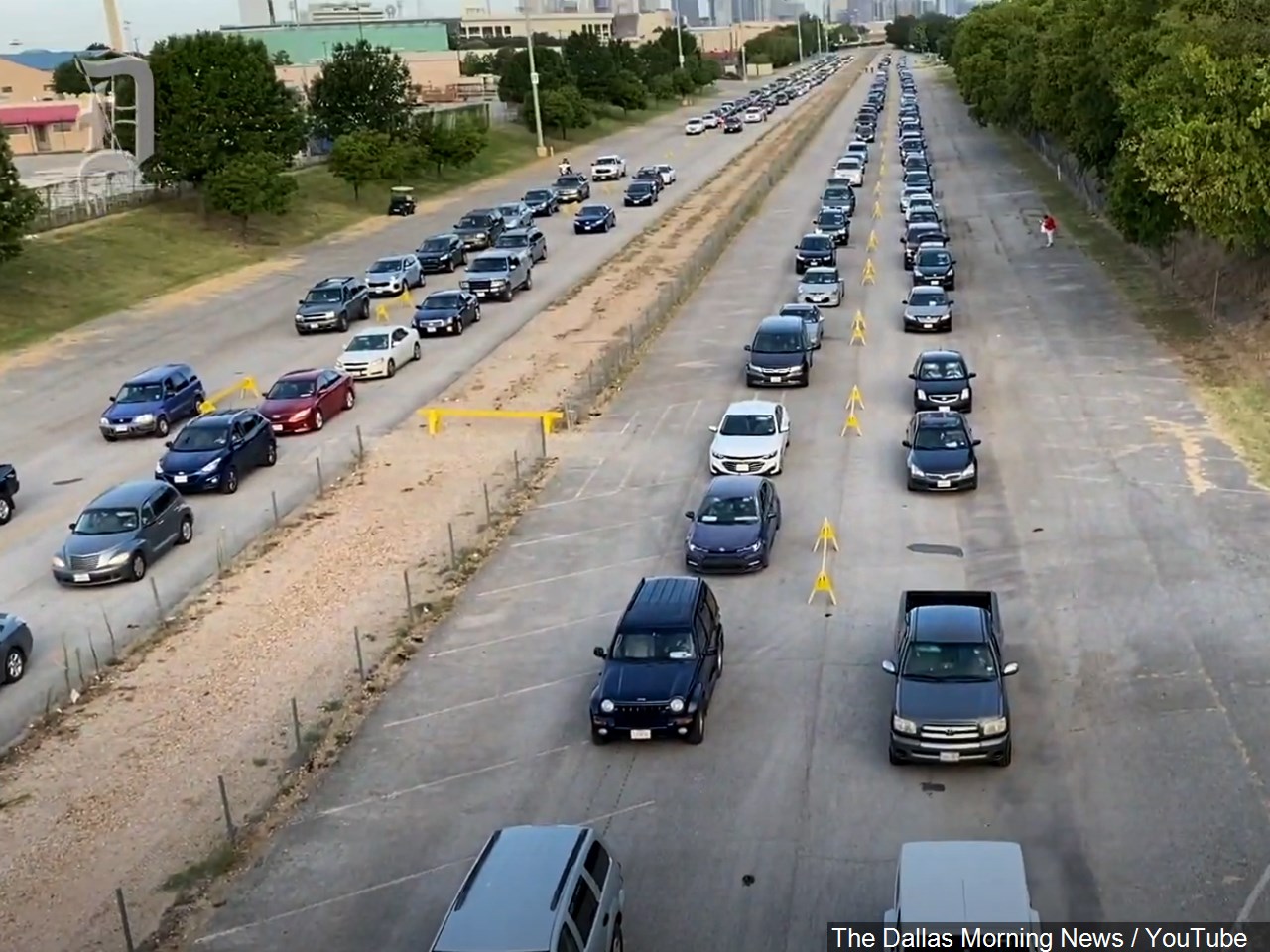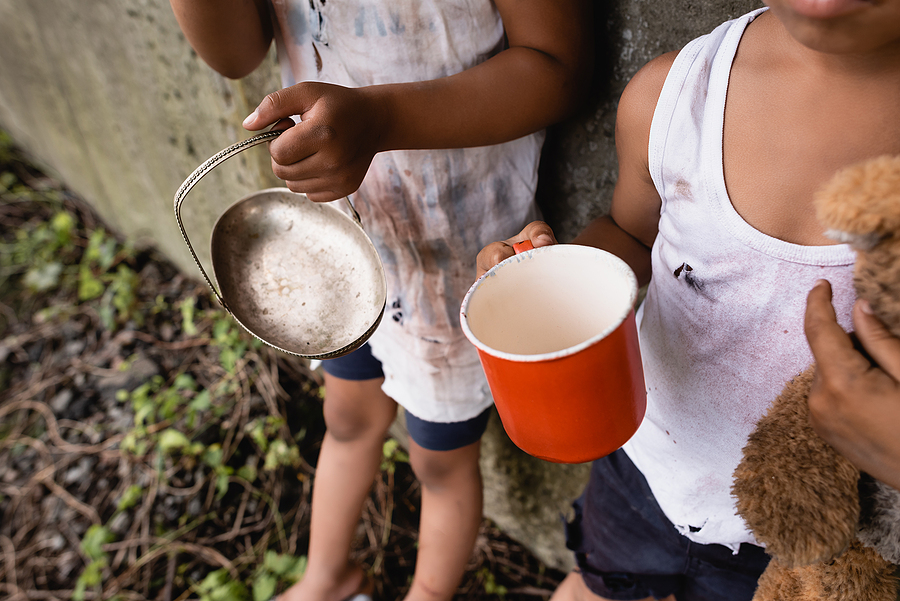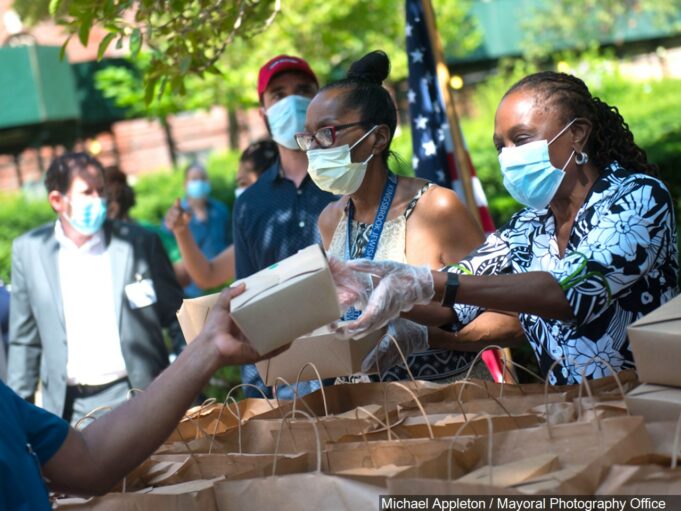The holiday known as Thanksgiving has come and gone but there is an ever present reality that remains—hunger in America.
The day that mocks the slaughter of the indigenous people of this nation comes with plenty of good and sincere efforts to show love and provide a momentary reprieve from suffering in the richest country in the world. It is heartfelt sentiment and charity, which is a principle of all religions, and a wonderful expression of compassion.
But individual compassion and empathy is no substitute for government policy, economic justice, and fairness in the lives of people. As the Economic Policy Institute observed earlier this year: “Rising wage inequality and slow and uneven hourly wage growth for the vast majority of workers have been defining features of the U.S. labor market for the last four decades, despite steady (if too slow) productivity growth. In only 10 of the last 40 years did most workers see any consistent positive wage growth.”
Meanwhile, “wage inequality continues to climb and workers at the middle and bottom of the wage scale are just making up lost ground and continue to struggle to make ends meet rather than get ahead.”
Black workers, of course, trail all others and the growing concentration of wealth into fewer and fewer hands is part and parcel of the shameful hunger crisis in the United States, where tons of food are usually discarded and millions need something to eat.
According to Feeding America, a national group that works with food banks across the country, “Healthy bodies and minds require nutritious meals at every age. But when people don’t have enough food or have to choose inexpensive foods with low-nutritional value, it can seriously impact their health. And once the cycle of poor diet and poor health begins, it can be hard to break.”

Hunger affects the daily lives of 1 in 9 Americans and 1 in 4 children in Black America.
“Put simply, hunger’s toll can be life-altering. When someone is sick, having to choose between food and treatment can lead to serious complications. For example, for food-insecure adults living with diabetes, the choice between food and controlling the disease can even lead to complications like kidney disease, eye disease and nerve damage. Food insecurity can lead to Type 2 diabetes, high blood pressure, heart disease and obesity,” said Feeding America.
More than half the households the group serves “have at least one member living with high blood pressure and more than one-third have a member with diabetes. Children at risk of hunger are more likely to be in poor health and struggle in school. Family members in food-insecure households are also more likely to struggle with psychological and behavioral health issues. And kids struggling to get enough to eat are more likely to have problems in school and other social situations.”
So what you think is a discipline problem or “acting out” may be a sign that a child is hungry and hasn’t had enough to eat.

“African American households face hunger at a rate more than twice that of white, non-Hispanic households. And getting enough to eat is a consistent struggle for 1 in 4 African American children,” reports the non-profit. “Unemployment and poverty disproportionately affect African Americans—making combatting hunger even harder African American households have significantly lower household incomes than white, non-Hispanic households. African Americans are also more than twice as likely to face hunger. Eight of the 10 counties with the highest food insecurity rates in the nation are at least 60 percent African American. Seven of the 10 counties are in Mississippi. Poverty rates for African Americans are more than twice that of white, non-Hispanic individuals.”
Nine percent of Blacks “live in deep poverty,” or survive off of less than 50 percent of the federal poverty threshold. Eighteen of 25 counties projected to have the highest 2020 food insecurity rates are majority Black.
The Covid-19 pandemic has brought increased reliance on food banks and charity and long, long lines of those waiting and hoping for help. Covid-19 also brings the fear that volunteers, the backbone of most of these operations, may drop out for fear of catching the coronavirus.
“According to the USDA, more than 35 million people, including nearly 11 million children, lived in food insecure households before the Covid-19 pandemic. However, a recent Feeding America analysis found that number could rise to more than 50 million people, including 17 million children, in 2020,” the group warned.
America is making choices and her choices are driving her society and her security downward as hunger, desperation and dissatisfaction grow. Jesus taught the “golden rule,” do unto others as you would want done unto you and warned if you have not cared for the least of these you have not cared for the Master.
A heartless society that pursues merciless public policies that deny the value of human life and reduce the chances for a decent existence is only planting the seeds for its undoing and downfall.













